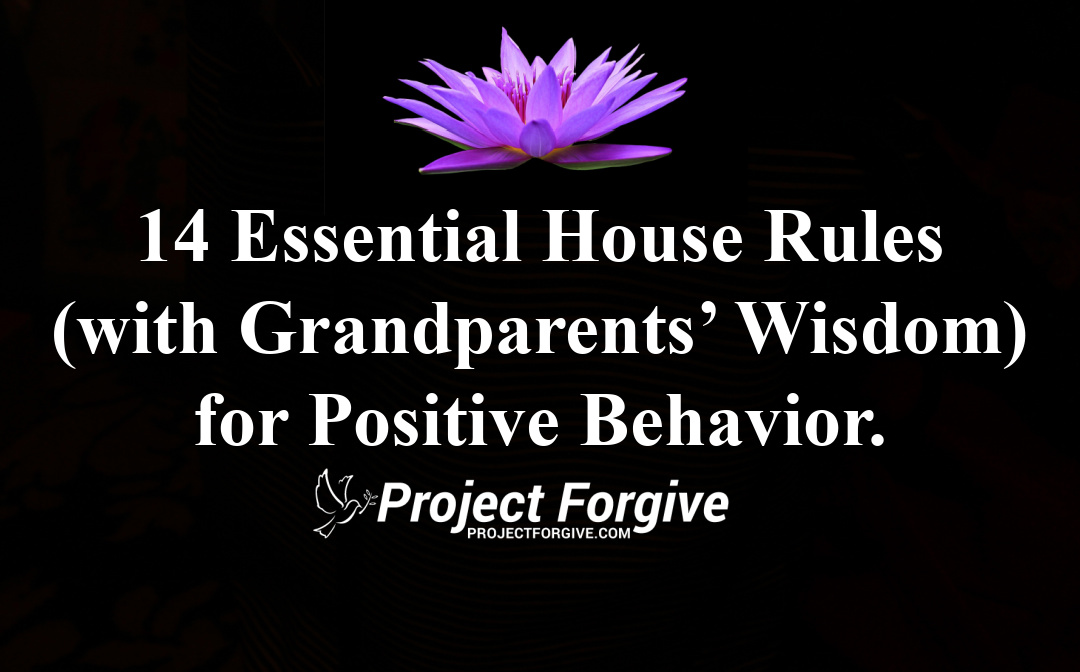Each household is run differently, and as a parent, you determine the behaviors that are acceptable or unacceptable underneath your roof. Add in grandparents and any inconsistencies and it can get messy fast!
Sometimes, though, as your child grows up, you realize that they need a bit more structure, or conversely, they’ve earned a bit more freedom.
Here are fourteen suggested topics to consider when setting or revising the rules that run your household and incorporating some great wisdom from YOUR parents, too.
1. Curfew
2. Cell Phone Use
3. Social Media Use
4. Friends
5. Dating
6. Mealtime
7. Respect and Disrespect
8. Communication
9. Physical Violence
10. Guns and Weapons
11. Drugs
12. Gang Colors
13. Vehicle Use
14. Chores and Other Household Responsibilities
Grandparent’s Wisdom:
As grandparents often say, “Consistency is key.” Many grandparents have seen firsthand how consistency in rules and communication strengthens the relationship between children and their parents. It’s not just about being strict, but about ensuring that children know what’s expected and feel secure within those boundaries. After all, children crave structure, even when they push back.

Tip 1: Flexibility with Growth
Grandparents often remind us that, while it’s essential to set rules, it’s equally important to adjust them as children grow and mature. As your child earns more trust, allow them more freedom, like extending curfews or offering extra responsibilities. This encourages personal growth and reinforces trust.
Tip 2: Respect Goes Both Ways
A grandparent’s advice on respect is timeless: “Model the behavior you want to see.” Just as you expect respect from your child, make sure you’re also showing them respect, especially in difficult conversations. Grandparents often highlight how speaking calmly and listening openly can diffuse tension and create a respectful environment.
Tip 3: Use Mealtime for Family Bonding
Grandparents treasure mealtimes as an opportunity to bond. They often advise using family meals as a place to check in with each other and reinforce family values. It’s a time to teach gratitude, manners, and create an open space for your child to talk about their day. No phones at the table, as many grandparents insist!
Within each category, consider and communicate (1) which behaviors are acceptable and unacceptable, (2) what the consequences are for unacceptable behavior, and (3) what the rewards are for positive behavior. Remember, if you aren’t clear and firm on these boundaries, then your child won’t be either. You know your boundaries are understood when your child can answer each of those questions correctly.

Testing the Effectiveness of Your Rules
A fun way to test the effectiveness of your own boundary-setting is to give your child a good ol’ fashioned quiz. As many grandparents might say, “If they can’t explain the rules to you, then they don’t truly understand them!” This quiz can be a lighthearted way to see if your child knows the expectations and consequences, and how well you’ve communicated these boundaries.
Remember, raising a child is a journey of evolving guidance and support. Just as your grandparents imparted wisdom onto you, their advice holds timeless value when fostering a loving, structured, and respectful household.
If inspired, please share.
Related Articles:
The Power of Hugs: How Embracing Your Kids and Grandkids Makes Them Smarter & Happier
6 Phrases That Stop Backtalk and Foster Respect


